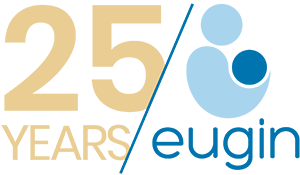Through the story entitled Le mystère des graines à bébé (The mystery of the baby seeds), the psychologist Serge Tisseron proposes helping parents who have used assisted reproduction technology and want to explain to their children how they were born
The subject of origins is particularly important in families who have had children using assisted reproductive technology. For this reason, Tisseron recommends talking about it naturally from an early age when the child is aged between 4 and 5. At that age, the child will already be asking about the history of the family.
According to this famous French scientist, clear responses that are adapted to the child’s ability to understand will help children build their own personality with no complexes or secrets. In Tisseron’s opinion, books containing fables or stories are a useful starting point for establishing this type of dialogue with children.
What led you to write The mystery of the baby seeds?
I have been studying family secrets for about thirty years and I am impressed with the creation of a new source of secrets based on different types of assisted reproductive techniques. For that reason I wanted to offer parents support to allow them to talk about this to their children from a very early age, using simple words and adapted images. A child will immediately understand that a story told in a book does not affect only him.
You have studied the relationship we establish with media images and you are a specialist in comics. Your book has been written to be read with a child. Do you think an illustrated story would be better to explain this issue?
The more difficult a subject is to explain, the more important it is to deal with it laterally, which has always been done through fables and tales. They are able to describe incest, abandonment and ill-treatment in a way that allows children to be introduced to the topic at their own pace and parents can give them information without having to go into detail about their personal history.
How important is it for a child to know he has been conceived in a “different way”?
If this “different way” is clearly presented, the child will understand it very well. But if it is concealed, there is a risk that the child will think it is shameful. The truth is, children hide things they are ashamed of, and they tend to think that the things that concern them about which their parents never speak must be shameful. For this reason, it is necessary to tell children about their origins as soon as they start to ask questions.
What advice would you give parents who decide to talk about this issue?
They should not force the children to give responses to questions they have not asked and they should also try and make them feel at liberty to ask all the questions they want. For instance, you could start by saying: “As you know, a baby is made from a seed that comes from daddy and a seed that comes from mummy, but daddy –or mummy– didn’t have any seeds”.
What would you say to people who decide not to tell their children they were conceived through assisted reproduction?
They should honestly ask themselves the following question: did they take that decision because of their child or was there another reason? In my experience, many parents decide to keep quiet about assisted reproductive treatment because it was a painful experience for them and they are afraid to show their feelings if they talk about it. Of course they have their own reasons for wanting to spare their children past suffering.
However, the child runs the risk of hearing about his or her origins from a different person and of no longer trusting his parents. It could also occur that some parents prefer not to tell their child about his origins to prevent their own parents from knowing about it. But when you are a parent you must choose between being your parent’s child and telling them what they want to know or being the parent of your own child and explaining to him what he has the right to know. After all, no-one is obliged to be a parent. If you decide to be a parent, well, that entails responsibilities.

Serge Tisseron
At what age do you recommend talking to the child about his origins?
The question arises naturally when the child is aged 4 or 5. He starts to formulate his own questions about “how babies are made”. Some parents think they must respond by explaining what sexual intercourse is. But at the age of 4 or 5 the only question that interests the child is about his origins. He wants to understand the place he occupies in the family history… and he also wants to ensure he is the outcome of a loving relationship.
Why do you recommend talking about it at that age?
A child is similar to a house that is being built. All houses need pillars. If those pillars are not properly seated, the construction will be fragile. Today, with all the different forms of assisted reproduction and access to new family models that exist, the construction of the child is not supported by one pillar but by three complementary ones: the first is the biological pillar, formed by the parents who are of different sexes, the second is the legal status of the child as he is registered at the time of birth and in the family book, and the third pillar is formed by the people responsible for his education. From the time a child starts to ask about his origins, it is necessary to respond separately to each of these three questions.
Some parents may fear that if they explain to their child that he is the outcome of in vitro fertility treatment, for instance, the bond of affection the child has with them will be broken. Is there any truth in this?
No. On the contrary, when the parent explains this, it’s as if the child is reborn. It allows him to know his true origins. Of course, during adolescence, a child born from gametes that are not those of his official parents will want to know about that other part of him, but this doesn’t mean he will love those who have loved and raised him any less. Parents who think this are mistaken. It’s like a mother refusing to tell her child the name of his father because she is afraid he will love her less! If the three functions traditionally guaranteed by a father and a mother are shared among various people, the child needs to know it.
Your book is a useful and entertaining tool that allows children to understand a situation that they could find difficult to comprehend. What other instruments can parents use?
All illustrated books that explain origins are excellent tools. A book has several advantages. It is an open door to the world, the pages are turned at the child’s pace and there is time to respond to his questions.
Do the four animals in the store (an owl, an elephant, a lizard and a penguin) have any special significance?
The owl is associated with wisdom and I thought this quality was appropriate for evaluating the path of little Paul. Since the animal that embodies wisdom responds to him, that is proof that his questions were wise! I used the elephant because of its trunk, which is like a third arm that allows him to hold the tube in which the seeds from daddy and mummy are mixed. The penguin takes charge of the frozen gametes and embryos. He even looks rather like a child! As for the lizard, I chose him because he is a contrast to the penguin and he allows me to introduce warmer colours…
What do you think about EUGIN’s initiative of offering your book to all its patients? Do you think it’s a good way to “close the circle”?
Yes, I’m very pleased with this opportunity. To allow our children to think calmly about what direction to take in an ever-changing world, it’s very important for them to know where they come from. In this respect, I think it’s a good idea to offer patients the book during the course of their assisted reproductive treatment.





